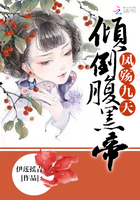There are literary reputations in France and England which seem, like the fairies, to be unable to cross running water. Dean Swift, according to M. Paul de Saint-Victor, is a great man at Dover, a pigmy at Calais--"Son talent, qui enthousiasme l'Angleterre, n'inspire ailleurs qu'un morne etonnement." M. Paul De Saint-Victor was a fair example of the French critic, and what he says about Swift was possibly true,--for him. There is not much resemblance between the Dean and M. Theodore de Banville, except that the latter too is a poet who has little honour out of his own country. He is a charming singer at Calais; at Dover he inspires un morne etonnement (a bleak perplexity). One has never seen an English attempt to describe or estimate his genius. His unpopularity in England is illustrated by the fact that the London Library, that respectable institution, does not, or did not, possess a single copy of any one of his books. He is but feebly represented even in the collection of the British Museum. It is not hard to account for our indifference to M. De Banville. He is a poet not only intensely French, but intensely Parisian. He is careful of form, rather than abundant in manner. He has no story to tell, and his sketches in prose, his attempts at criticism, are not very weighty or instructive. With all his limitations, however, he represents, in company with M. Leconte de Lisle, the second of the three generations of poets over whom Victor Hugo reigned.
M. De Banville has been called, by people who do not like, and who apparently have not read him, un saltimbanque litteraire (a literary rope-dancer). Other critics, who do like him, but who have limited their study to a certain portion of his books, compare him to a worker in gold, who carefully chases or embosses dainty processions of fauns and maenads. He is, in point of fact, something more estimable than a literary rope-dancer, something more serious than a working jeweller in rhymes. He calls himself un raffine; but he is not, like many persons who are proud of that title, un indifferent in matters of human fortune. His earlier poems, of course, are much concerned with the matter of most early poems--with Lydia and Cynthia and their light loves. The verses of his second period often deal with the most evanescent subjects, and they now retain but a slight petulance and sparkle, as of champagne that has been too long drawn. In a prefatory plea for M. De Banville's poetry one may add that he "has loved our people," and that no poet, no critic, has honoured Shakespeare with brighter words of praise.
Theodore de Banville was born at Moulin, on March 14th 1823, and he is therefore three years younger than the dictionaries of biography would make the world believe. He is the son of a naval officer, and, according to M. Charles Baudelaire, a descendant of the Crusaders. He came much too late into the world to distinguish himself in the noisy exploits of 1830, and the chief event of his youth was the publication of "Les Cariatides" in 1842. This first volume contained a selection from the countless verses which the poet produced between his sixteenth and his nineteenth year.
Whatever other merits the songs of minors may possess, they have seldom that of permitting themselves to be read. "Les Cariatides"are exceptional here. They are, above all things, readable. "On peut les lire e peu de frais," M. De Banville says himself. He admits that his lighter works, the poems called (in England) vers de societe, are a sort of intellectual cigarette. M. Emile de Girardin said, in the later days of the Empire, that there were too many cigarettes in the air. Their stale perfume clings to the literature of that time, as the odour of pastilles yet hangs about the verse of Dorat, the designs of Eisen, the work of the Pompadour period.
There is more than smoke in M. De Banville's ruling inspiration, his lifelong devotion to letters and to great men of letters--Shakespeare, Moliere, Homer, Victor Hugo. These are his gods; the memory of them is his muse. His enthusiasm is worthy of one who, though born too late to see and know the noble wildness of 1830, yet lives on the recollections, and is strengthened by the example, of that revival of letters. Whatever one may say of the renouveau, of romanticism, with its affectations, the young men of 1830 were sincere in their devotion to liberty, to poetry, to knowledge. One can hardly find a more brilliant and touching belief in these great causes than that of Edgar Quinet, as displayed in the letters of his youth. De Banville fell on more evil times.
When "Les Cariatides" was published poets had begun to keep an eye on the Bourse, and artists dabbled in finance. The new volume of song in the sordid age was a November primrose, and not unlike the flower of Spring. There was a singular freshness and hopefulness in the verse, a wonderful "certitude dans l'expression lyrique," as Sainte-Beuve said. The mastery of musical speech and of various forms of song was already to be recognised as the basis and the note of the talent of De Banville. He had style, without which a man may write very nice verses about heaven and hell and other matters, and may please thousands of excellent people, but will write poetry--never. Comparing De Banville's boy's work with the boy's work of Mr. Tennyson, one observes in each--"Les Cariatides" as in "The Hesperides"--the timbre of a new voice. Poetry so fresh seems to make us aware of some want which we had hardly recognised, but now are sensible of, at the moment we find it satisfied.















